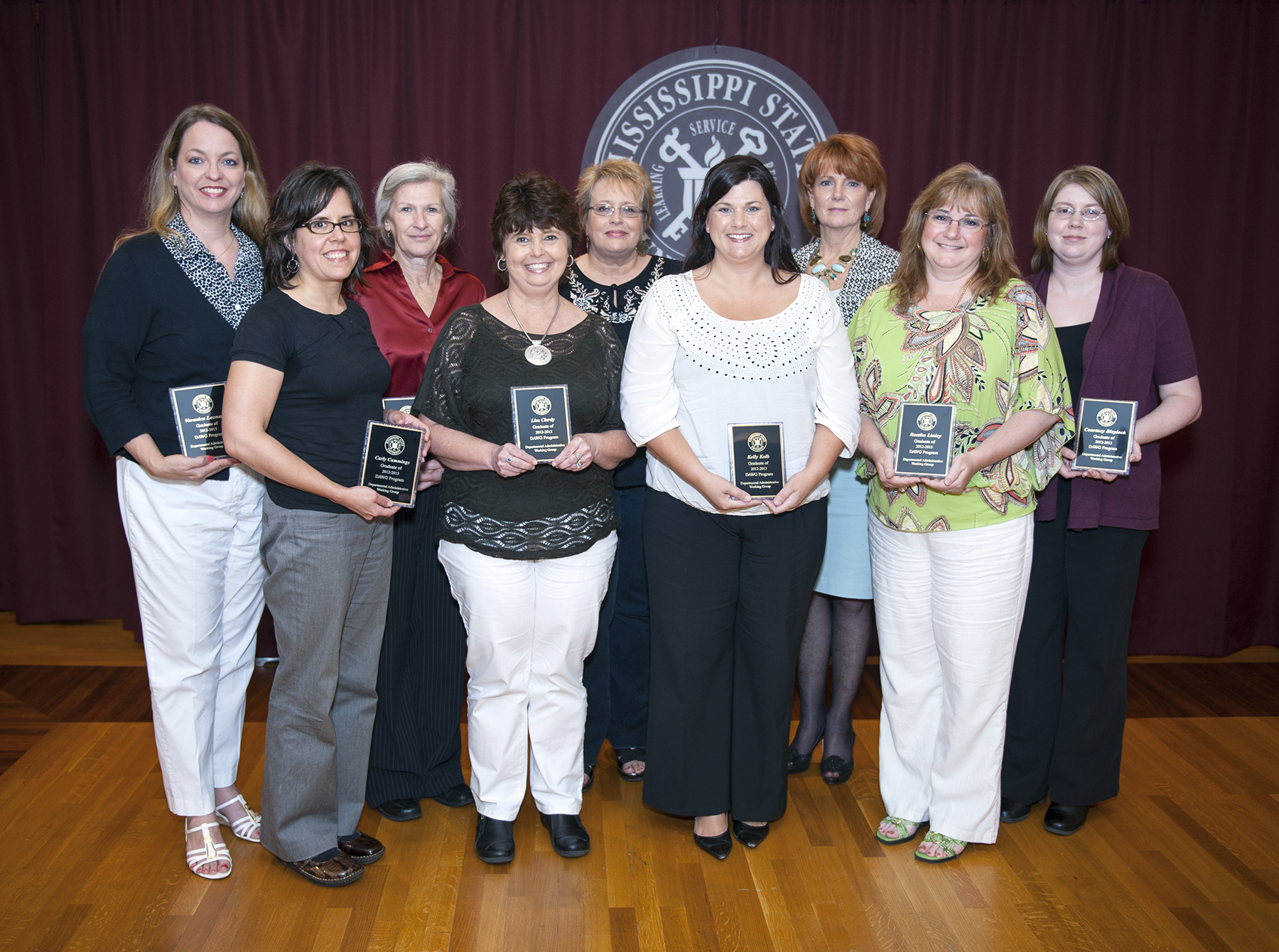Contact: Jim Laird

Photo by: Russ Houston
Nine Mississippi State staff members are the first graduates of a new professional development program offered by the university's Office of Sponsored Programs Administration.
A unit of the Office of Research and Economic Development, SPA oversees external sponsored programs--the grants, contracts and similar agreements that help fund research at the land-grant institution.
The inaugural Departmental Administrator Working Group--DAWG, for short--provided participants an eight-month curriculum designed to develop sponsored-project administration skills and foster networking opportunities with their campus peers, according to the program's coordinator.
"We wanted to offer a training resource that helped sponsored research administrators grow professionally and that also fostered connections between departments," said Robyn Remotigue, a SPA assistant director.
Participants were chosen through a competitive nomination and selection process, and each was paired with a mentor, she said.
The first class of DAWG graduates include Courtney Blaylock and Carol Martin, Bagley College of Engineering; Lisa Clardy, MSU Extension Service; Carly Cummings, College of Arts and Sciences; Kay Davidson, Forest and Wildlife Research Center; Carol Ellington, High Performance Computing Collaboratory; Kelly Kolb, Sponsored Programs Accounting; Veronica Leonard, Brown Loam Branch Experiment Station; and Reatha Linley, chemistry department.
In addition to Remotigue, class mentors included LaDonna Bullman, Forest and Wildlife Research Center; Sherre Denson, chemical engineering department; Michael Dewberry, College of Veterinary Medicine's basic science department; Maryann Downs, Mississippi Agricultural and Forestry Experiment Station; Natalie Eaves, High Performance Computing Collaboratory; Dana Lewis, Sponsored Programs Accounting; Kacey Strickland, Regulatory Compliance and Safety; and Vicki Vaughn, Southern Rural Development Center.
During monthly, two-hour meetings, the roles and priorities of SPA and MSU departments were examined. Sessions focused on different training areas to prepare for the Certified Pre-Award Research Administrator examination, Remotigue explained.
Topics included budget building, sponsor guidelines, application packages, regulatory compliance, proposal submission systems, the role of the principal investigator in managing a project, and understanding facilities and administrative costs.
After a successful first class, the SPA team already is making additional plans for the DAWG program.
"We had a very good first year, and plan on using what we learned from it to make next year's program even better," said SPA Director Jennifer Easley.